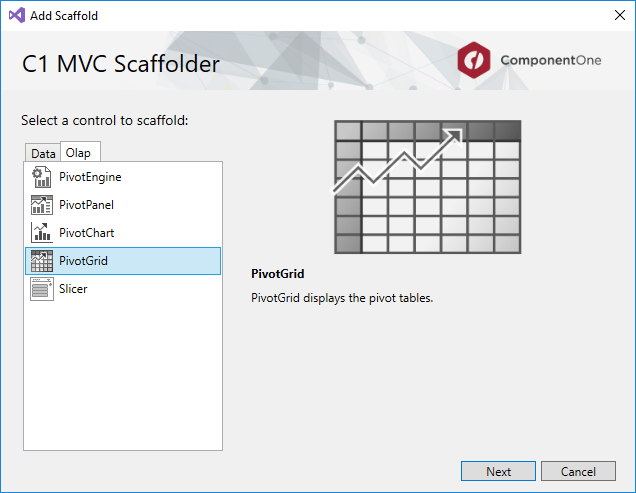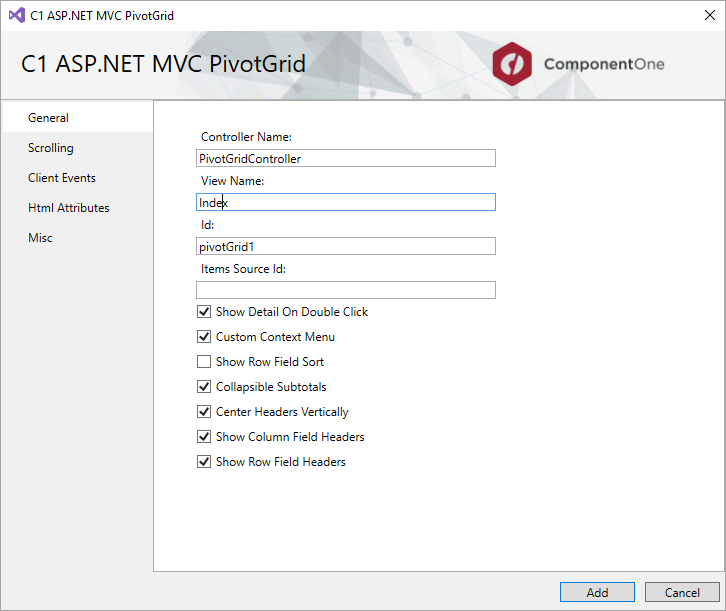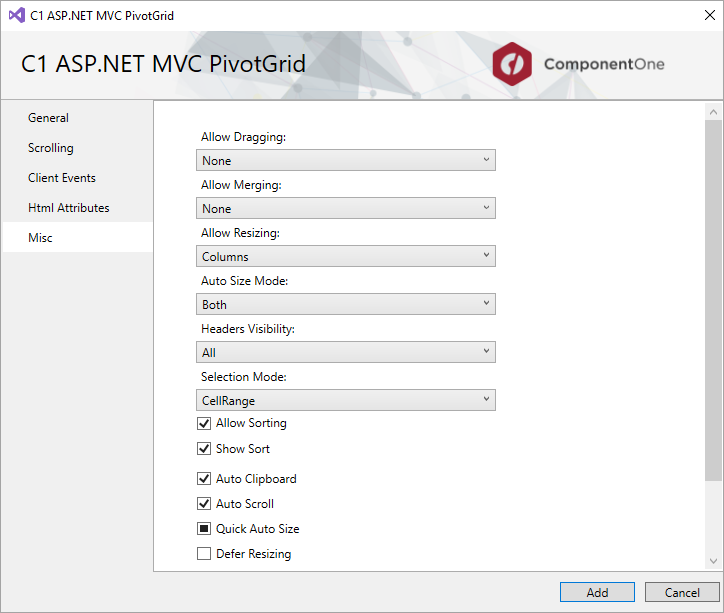The steps to scaffold ComponentOne OLAP control for ASP.NET MVC are as follows:
- Configure the datasource. Refer the topic Data Source Configuration to see configuring a datasource in an application.
-
In the Solution Explorer, right-click the project name and select Add | New Scaffolded Item. The Add Scaffold wizard appears.
-
In the Add Scaffold wizard, select Common and then select C1 Scaffolder from the right pane. You can also select Common | MVC | Controller or Common | MVC | View and then C1 Scaffolder to add only a controller or a view.

-
Click Add. The AddScaffold wizard appears with the Data tab selected by default.
-
In the AddScaffold wizard, select the Olap tab.

-
In the AddScaffold wizard, select PivotEngine control and click Next. The C1 ASP.NET MVC PivotEngine wizard appears with the General tab selected by default.
-
In the General tab, specify the basic details as follows:
- Enter the Controller Name and View Name.
- Enter the Id for the PivotEngine control.

- In the Client Events tab, check BeginningEdit check box.
-
In the Misc tab, specify the model details as follows:
- Select None from the Allow Dragging dropdown list.
- Check the Allow Sorting checkbox.

- Click Add. You will notice that the Controller and View for the PivotEngine control is added to your project.
- Configure the datasource. For more information on configuring a datasource in ASP.NET Core application, see https://docs.microsoft.com/ja-jp/ef/core/get-started/aspnetcore/existing-db.
-
In the Solution Explorer, right-click the project name and select Add | New Scaffolded Item. The Add Scaffold wizard appears.
-
In the Add Scaffold wizard, select Common and then select C1 Scaffolder from the right pane. You can also select Common | MVC | Controller or Common | MVC | View and then C1 Scaffolder to add only a controller or a view.

-
Click Add. The AddScaffold wizard appears with the Data tab selected by default.
-
In the AddScaffold wizard, select the Olap tab.

-
In the AddScaffold wizard, select PivotEngine control and click Next. The C1 ASP.NET MVC PivotEngine wizard appears with the General tab selected by default.
-
In the General tab, specify the basic details as follows:
- Enter the Controller Name and View Name.
- Enter the Id for the PivotEngine control.

- In the Client Events tab, check BeginningEdit check box.
-
In the Misc tab, specify the model details as follows:
- Select None from the Allow Dragging dropdown list.
- Check the Allow Sorting checkbox.

- Click Add. You will notice that the Controller and View for the PivotEngine control is added to your project.